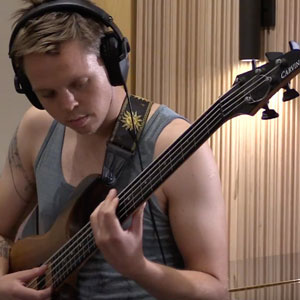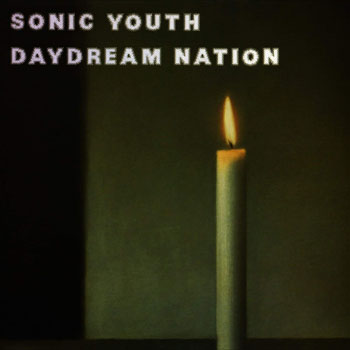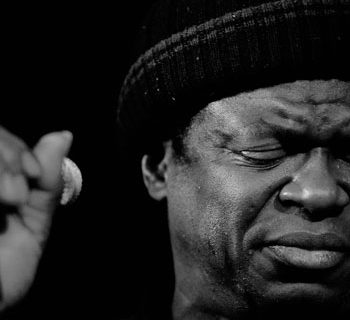Take a generous scoop of ambient post-rock, add thoughtful lyrics, a voice like an angel's, and a few prog-rock accoutrements—a distorted guitar here, a found sound there, and a devil's triad there—and you might end up sounding like Genesis during the Peter Gabriel years. Or you could sound like alt-rockers King of Nowhere on their superb new album, Blooms Hang Heavy, released on September 10.
Genesis comparison aside, there are far too many experimental and alt rock elements in this music to make it a mere throwback, and besides, King of Nowhere's roots are too firmly entrenched in the Northeast. The band's leader, Jesse French, is from Vermont, and the earliest incarnation of the band was conceived in 2013 in western Massachusetts.
Blue state ideals and ideologies have influenced his thinking, but French's world view was also honed by the science fiction and fantasy novels of Isaac Asimov, Robert Heinlein, and Orson Scott Card. "Kinda lived in my own world." he confesses, revealing a common ground with countless creative types from time immemorial.
Although it doesn't exactly ring out on the album, there's clearly a folk connection in the musicianship and in French's deeply soulful vocal delivery. (Check out this video, in which he sings the traditional "As I Roved Out" as beautifully as it's ever been sung.) "The first band that Porter Fitch (King of Nowhere's guitarist) and I were in together, I played banjo, and he played dobro," says French.
The folk influence, given further voice by Dylan LaPoint on bass and Aaron Noble on drums, comes sounds more like Neil Young than Pete Seeger but bears the band's own unique stamp—the words even more so. In true folk tradition, King of Nowhere doesn't hide its heart up its sleeve; and both the title of the album and the lyrics betray a frank expression of deep seated discontent with intensifying social, cultural, and political issues.
Putting these thoughts into his songs is a natural result of being so often preoccupied with them, French admits:
"I remember staying up at night as a kid feeling devastated by all the horrible shit that was going on around the entire world. That understanding has since morphed from a visceral one to a more analytical one. As far as it being in the music, this stuff occupies much of what I think and talk about. I guess it would be weird if the art didn’t reflect that."
This is immediately apparent on the first track of Blooms Hang Heavy, “Pigeons,” a song that could almost be heard as a meditation on the brokenness of this world. It begins with one of the most haunting guitar riffs imaginable, expressing both beauty and irony in a way that prepares the listener for a message that's anything but superficial before launching into a poetic first verse followed by a chorus tinged with a bitterness that rises to a crescendo. The lyrics, spoken from the point of view of an arrogant oppressor, show a deep empathy for the ignored, the neglected, the exploited, and the poor:
We're treating you like pigeons shitting on the roof—
Installing spikes and fences, starving out the youth.
The city cries, but not for you.
We close our eyes when you come through.
The other songs follow the same themes, mostly, with equally eerie but gorgeous dissonant intros setting the stage for hard hitting messages of disappointment, despair, and longing. Each track tends to slowly rise to a psychedelic zenith before cooling down to a gentle reminder of what the song is really about. "Ruins" is a great example, beginning in beautiful ambience, adding nightmare sounds, and then delivering a rock hymn to loss.
Each track tends to slowly rise to a psychedelic zenith before cooling down to a gentle reminder of what the song is really about.
One of composer/arranger French's trademarks appears to be sensitive riff. In "Song for William Devlin" he uses an engaging vocal riff in much the same way as the guitar riff used in the title track.
Whatever pessimism might emerge in the lyric and sound, the band’s progression comes off as purely positive and dynamic. This is in part due to the warm, intimate mood generated by the band and the production process, and partly due to the creative force that the band exudes, a force that doesn't look like it's going to peter out any time soon.













